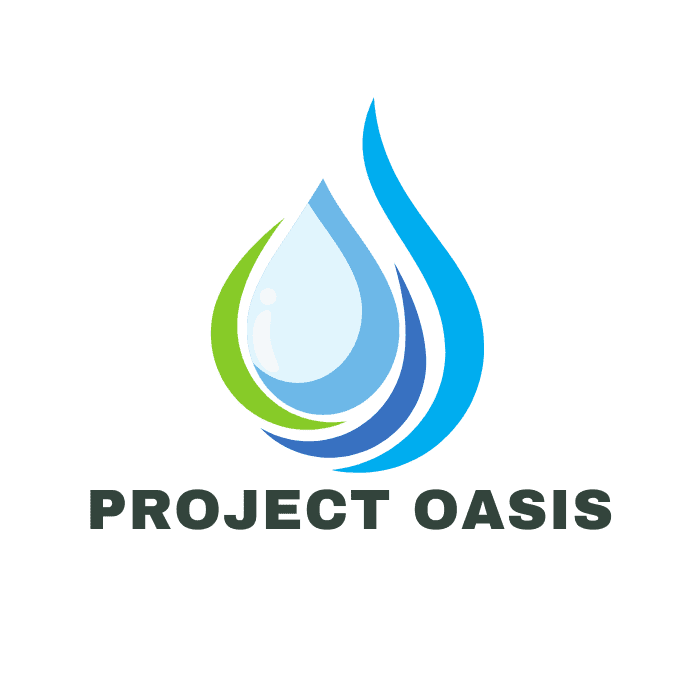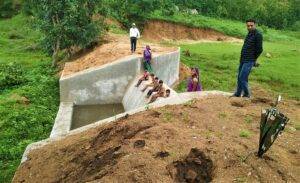Empowering Women in Water Management with Building Sustainable Futures
In the arid landscapes of Ajmer, Rajasthan, where water scarcity is a daily struggle, Project Oasis is
transforming the lives of villagers, especially women. Under the aegis of the International Association
for Human Values (IAHV), this initiative focuses on developing self-sustained water resources through
rainwater harvesting and check dams. As water becomes a critical resource, empowering women in
water management is not just an act of inclusion but a necessity for sustainable development and
social impact.
The Heart of the Water Crisis
India faces a severe water crisis, with approximately 97 million people lacking access to drinking
water. Rajasthan, with only 1% of the country’s water resources but 6% of its population, is among the
worst affected. Women, often the primary water gatherers, bear the brunt of this crisis. They walk
miles in scorching heat to fetch water, a task that not only exhausts them physically but also limits
their opportunities for education and economic activities. In rural areas like Ajmer, this daily chore
detracts from their ability to contribute to other aspects of community and family life.
The Role of Project Oasis
Project Oasis, executed by IAHV and supported by Aakar Charitable Trust, aims to address water
scarcity in India by building check dams. These structures capture and store rainwater, ensuring
year-round water availability. This water project has already built over 350 check dams, transforming
the lives of more than 400,000 people across 300 villages in Western and Central India.
The impact of these check dams is profound. By slowing down the water flow, they reduce erosion,
recharge groundwater, and provide a reliable water source for drinking and irrigation. This initiative is
a beacon of hope for water-scarce regions, where traditional water sources are unreliable.
Empowering Women Through Water Management
One of the most remarkable aspects of Project Oasis is its emphasis on empowering women. By
involving them in the planning, construction, and maintenance of check dams, the project ensures that
women are not just beneficiaries but active participants in water management. This involvement has
multiple benefits:
- Leadership and Decision-Making: Women are given leadership roles in the water project,
fostering a sense of ownership and responsibility. Their participation in decision-making processes
ensures that their needs and perspectives are considered. - Economic Empowerment: With reliable access to water, women can engage in agriculture and
other economic activities. This reduces their dependence on male family members and contributes to
the household income. - Community Building: Women’s involvement in these projects strengthens community bonds. As
they work together on water management, they develop skills and relationships that benefit the entire community. - Education and Health: By reducing the time spent on water collection, women and girls have
more time for education. Access to clean water also improves overall health, reducing waterborne
diseases.
Success Stories from Ajmer
In Ajmer, the success of Project Oasis is evident in the transformed lives of women like Rekha Devi.
Before the construction of the check dam in her village, Rekha spent several hours each day fetching
water. Now, she uses that time to cultivate her small farm, grow vegetables, and even participate in
local markets. Her increased income has allowed her to send her children to school and invest in their
future.
Another inspiring story is that of Kamla Bai, who has taken on a leadership role in managing the
village’s water resources. She leads a team of women in maintaining the check dam and ensures its
efficient functioning. Kamla’s leadership has inspired many young girls in her village to aspire to roles
beyond traditional household duties.
The Broader Impact
The social impact of Project Oasis extends beyond individual success stories. The project has helped
12,000 families, brought back 23,000 migrant workers, and benefited over 92,000 people. These
numbers reflect a broader change in community dynamics and economic stability.
For the year 2024, Project Oasis has proposed six new check dams in Rajasthan, located in
Dungarpur, Pali, Udaipur, and Pratapgarh districts. These projects are expected to benefit over 5,000
people, recharge numerous wells, and increase irrigated land by thousands of acres.
Call to Action
Project Oasis’s mission is ambitious but achievable. By 2030, the goal is to build 1,000 check dams
and positively impact the lives of over 2 million villagers. This can only be accomplished with
continued support and collaboration.
We invite you to join us in this transformative journey. Whether through donations, volunteering, or
spreading awareness, your contribution can make a significant difference. If you need assistance in
building a check dam in your location, mark us an email at projectoasis2@gmail.com. Together, we
can ensure that water, the lifeblood of communities, is available to all.
Conclusion
Empowering women in water management is crucial for sustainable development and the overall
well-being of communities in water-scarce regions. Project Oasis exemplifies how targeted initiatives
can address critical issues like water scarcity while fostering social and economic empowerment. By
building check dams and involving women in their management, Project Oasis is creating ripples of
positive change that will benefit generations to come. As we move towards a future where water
scarcity becomes an increasing challenge, initiatives like Project Oasis provide a blueprint for
sustainable solutions. Let’s support and expand these efforts to ensure that every village has access
to clean water and every woman has the opportunity to thrive.
Empowered women lead the way, bringing water to all,
Together we rise, breaking drought’s thrall.
With Project Oasis.





